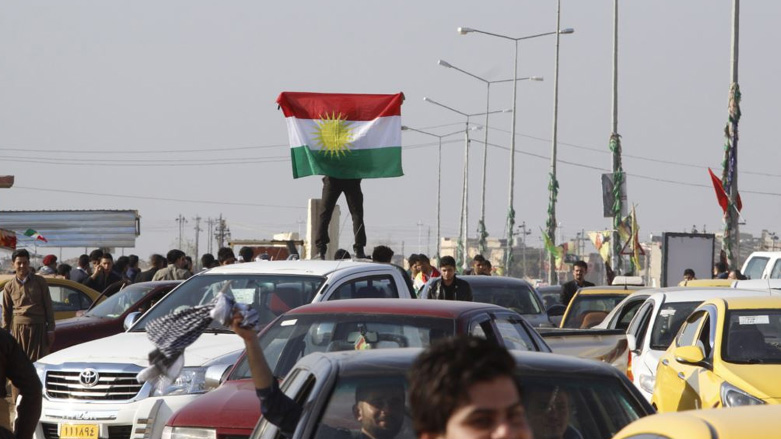Iraqi lawmakers allege anti-Kurdish discrimination in Kirkuk, call on PM to take action

ERBIL (Kurdistan 24) – A member of the Iraqi parliament on Thursday claimed that Kurds in Kirkuk hold a disproportionately low number of positions in the ethnically-diverse province's security agency, calling on Prime Minister Mustafa Al-Kadhimi to put an end to what he described as discriminatory practices by the local government.
Kurds in Kirkuk "are marginalized in the security and administrative departments... even though they constitute more than 50 percent of the province's population," said Jamal Mohammad, a member of the Iraqi parliament from Kirkuk, during a press conference.
Mohammad is one of six Kurdish lawmakers representing Kirkuk in the national legislature, out of a total of twelve from the province. The legal body has 329 seats. Discrimination against Kurds plagues many other public sector departments, as well as social life, according to the lawmaker.
Mohammad mentioned that, along with his five Kurdish colleagues, he had earlier met with the head of the National Security Agency, Qasim Al-Araji, to demand proportional representation in the agency's Kirkuk department. He also detailed the demographics of the 276-member security body in Kirkuk: 141 are ethnically Arab, 111 Turkmen, with the remaining 24 members being Kurdish.
He called for the handover of Kirkuk's security file to the local police instead of the joint military forces per Iraqi government order. He also stressed the need to end the province's militarization.
"The prime minister must respond to the demands of [Kurds] and develop fair solutions that guarantee all components of Kirkuk their demographic and historical rights," Mohammed added.
Related Article: Kirkuk's acting governor summoned to answer for 'targeting' of Kurdish population
Kirkuk, home to Kurds, Arabs, Turkmen, and Christians, is the epicenter of contention between the federal Iraqi government and the Kurdistan Regional Government (KRG) and the most prominent of the territories disputed by the two.
Kurds in Kirkuk have complained of mistreatment and racist policies by the local administration, citing the unjust removal of Kurdish officials from their posts.
These issues arose after the military takeover of Kirkuk and other disputed territories on Oct. 16, 2017, by Iraqi security forces and Iranian-backed Shia militias, a move that was in response to the Kurdistan Region's historic independence referendum just weeks before. Baghdad's military action eventually led to Rakan al-Jabouri, an ethnically Sunni Arab, replacing Najmaldin Karim, a Kurd, as acting governor.
The Kurdish community in Kirkuk has suffered countless injustices since then, particularly being forced to leave their homes with self-proclaimed owners of Arab descent using the same deeds issued during Saddam Hussein's reign.
An oil-rich province, Kirkuk has not had local elections since 2005 because of a lack of consensus on a unified law between its ethnic and religious groups.
Editing by Khrush Najari
